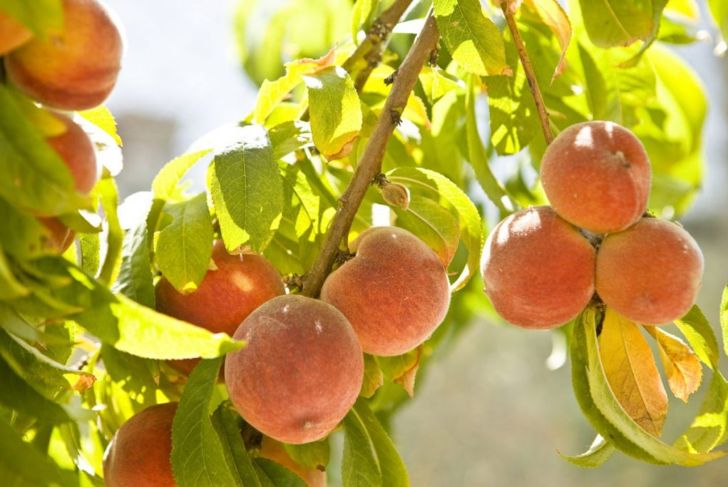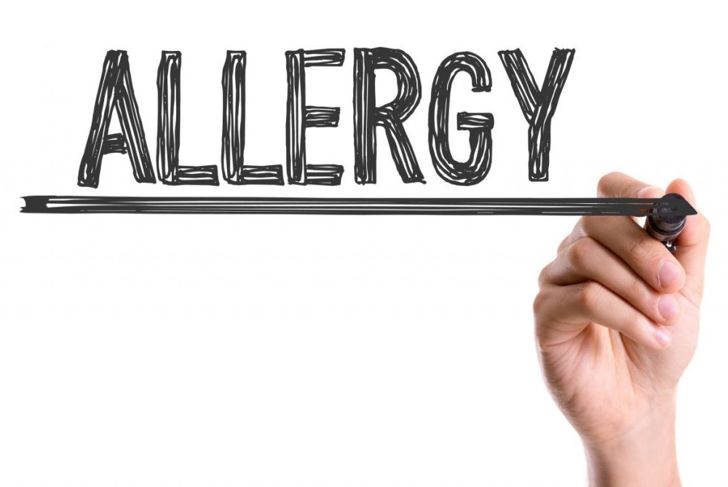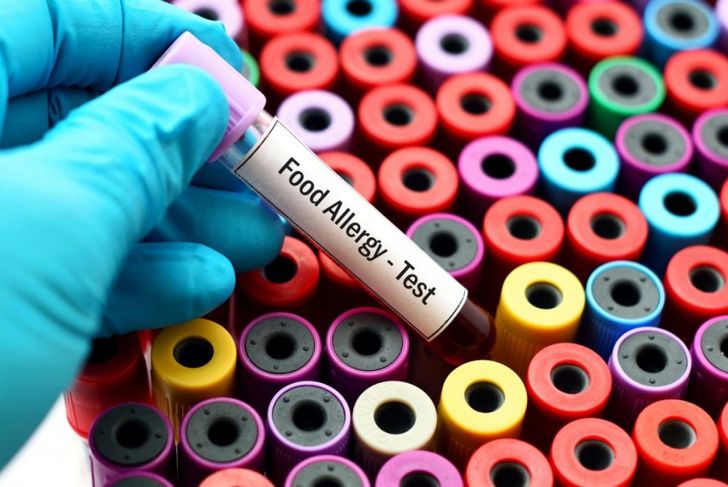The sweet and juicy pear is, for most people, a tasty treat. But for people with pear allergies, an experience eating this common fruit is very different. Like many other allergenic foodstuffs, pears can trigger reactions in a small number of people. These reactions can range from mild to very severe.
Birch-Fruit Syndrome
Some people from Northern Europe have a birch-pollen allergy. The proteins that cause allergic reactions in birch and pear are very similar, and this can lead to birch-fruit syndrome. The symptoms usually appear within minutes of eating raw pears, and they tend to be localized and clustered. They involve itching and inflammation in the mouth and throat, symptoms consistent with oral allergy syndrome (OAS). The allergen that causes this reaction does not withstand cooking, however, so people with birch-fruit syndrome can tolerate cooked pear in jams, jellies, preserves, and pies. Other foods that may cause similar reactions are apples, apricots, bananas, cherries, melons, some nuts, carrots, and celeriac.
Peach Allergy
People of Mediterranean ancestry are more likely than others to have pear allergy. Much like people with birch-fruit syndrome, they too have allergic reactions because the immune system mistakes one allergen for another. But for these individuals, eating pears can cause far more serious symptoms including OAS, urticaria (breaking out in hives), vomiting, abdominal pain, and even anaphylaxis, which is life-threatening. These reactions are not only more severe but also more frequent because the allergen survives in processed foods. So, people with this type of allergy cannot tolerate pears in their food or drink, regardless of form. They usually also develop adverse reactions to other fruit, including peach, apple, plum, cherry, and some nuts with lipid transfer protein (LTP). For the latter reason, these people are LTP-allergic.
Pear Allergy Vs Intolerance
People sometimes mistake food allergies, including pear allergy, for food intolerance. But these conditions involve entirely different mechanisms within the body and trigger very different reactions. An allergy occurs when the immune system tries to protect you from an allergen and wages a battle with this ‘invader’ causing adverse reactions. But it sometimes gets things wrong because, even though some allergens are harmless molecules, they can be similar to harmful molecules. Intolerance, on the other hand, is just a digestive issue, where the gut can’t tolerate something in the food (some acids, sugars, etc.). Intolerance can also have unpleasant symptoms, including a migraine, fatigue, bloating, diarrhea, joint pain, and nasal congestion, but they will never escalate to anaphylaxis.
When to See an Allergist
Some people with allergies experience mild symptoms and don’t mind making small changes to their diet to avoid food that could contain pears. However, everyone with pear allergy should seek medical advice regardless of severity, as soon as symptoms first surface. Severe reactions that call for immediate medical attention include: airways tightening or the tongue swelling until it interferes with breathing, rapid but weak pulse, dizziness, light-headedness, a sudden drop in blood pressure, loss of consciousness, or going into shock.
Diagnosing Pear Allergy
When you see an allergist, they will take your clinical history and ask you about specific events from your past where you experienced unpleasant symptoms. It’s particularly important to mention events where your reaction was not localized in the mouth area. There is a risk that oral allergy syndrome (OAS) could progress to systemic symptoms (consistent with LTP allergy), and even to anaphylactic shock. Before any recommendations are made, the allergist may want to conduct a skin prick test or determine your reaction to certain foods.
Treating Pear Allergy
Various antihistamine medications can help prevent or decrease the effects of an allergic reaction. As they all have side effects and contraindications, it is always best to see a doctor before settling on a type of medicine. People who are pregnant, breastfeeding, or who have diabetes, epilepsy, high blood pressure, or an overactive thyroid could be particularly affected by these side effects.
Treating Pear Allergy
If you are at risk of developing anaphylaxis after eating foods that contain pears, your doctor will most likely recommend that you always carry an injector that can direct medicine directly into the muscle. Someone should call the emergency immediately. If you require hospitalization, you may receive oxygen to help you breathe and medicine like antihistamines or cortisone intravenously to bring down the swelling in your air passages.
Risk Factors for Pear Allergy
Your ancestry and where you live may affect the type of allergy you have. Birch pollen is more likely to cause allergic reactions in the northern hemisphere, where birch trees grow. If you don’t live in an area where birch trees grow, you may not be aware you have birch pollen or pear allergy. You can develop lip, mouth, and throat swelling after eating pears. But you may also have skin reactions or asthma and rhinitis symptoms, making it hard to pinpoint the culprit, especially since other fruits can cause these symptoms, as well. Likewise, the other type of reaction, where an allergen under the skin of a fruit cross-reacts with pear allergens, is more common in the Mediterranean area. Age is another risk factor. Pollen-food syndrome tends to be something teenagers and young children suffer from, rather than children or the elderly.
Preventing a Reaction to Fruit
Many of the most common fruits can cause allergic reactions. The most common and clear reactions are to apple, peach, and kiwi fruit. But fruits contain a variety of allergens. So, people with pear allergies can display a similar reaction to various fruits, and others may have different reactions to the same fruit. The most unpleasant reactions happen when LTP-allergic people eat raw fruit with the skin on. Apples, for instance, have a heat-stable allergen that lies just under the skin. This allergen cross-reacts with pear allergens, amplifying the reaction. People with this type of reaction need to take extra care not to eat the peel of a fruit.
Testing for Pear Allergy
If you think you have allergic reactions to pears, seeing a doctor will help you avoid long-term health problems. An allergist or a nutritionist can test you and answer any questions. There are also various options available to people who would rather self-test. Before buying a self-test kit, make sure that you understand what you’re testing for and how it’s tested.

 Home
Home Health
Health Diet & Nutrition
Diet & Nutrition Living Well
Living Well More
More




















